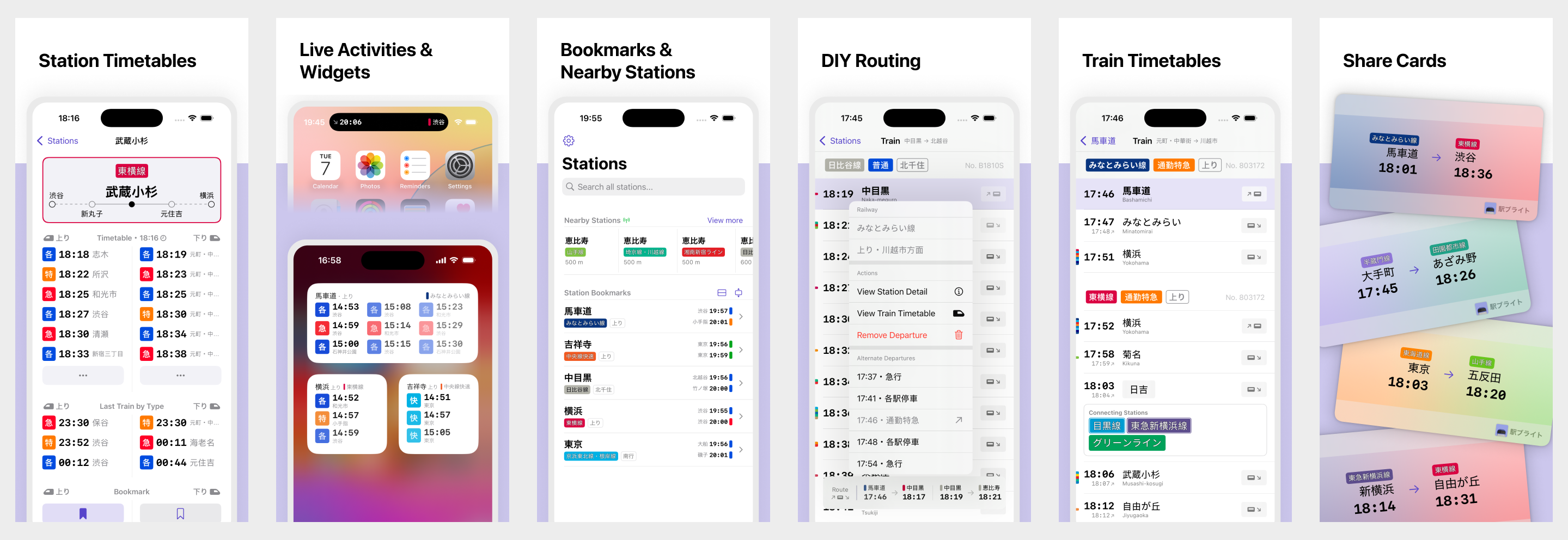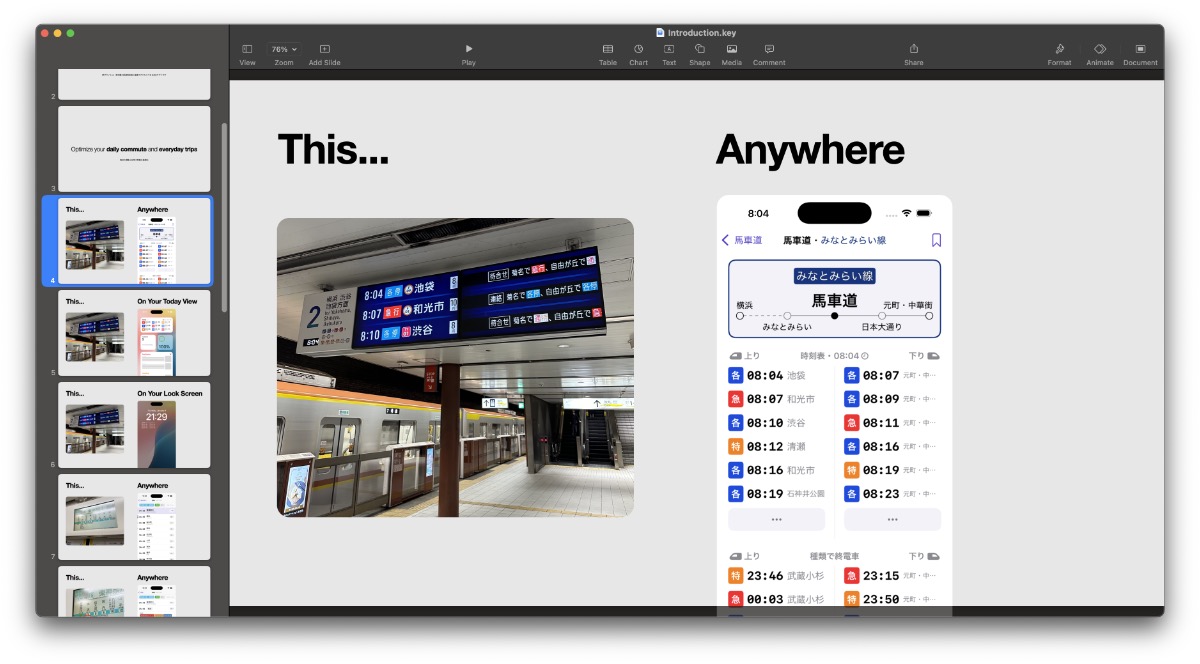Eki Bright - Open Data Challenge for Public Transportation 2024 Entry
Eki Bright, my iOS app for train timetables in the Tokyo metropolitan area, uses data from the Public Transportation Open Data Center (ODPT). ODPT recently concluded their 5th contest, Open Data Challenge for Public Transportation 2024.
We look forward to enthusiastic challenges from developers around the globe, aiming to create new services utilizing this data, solve social issues, and drive regional revitalization.
This post is a short retrospective on my participation.
I had already started work on Eki Bright months before the challenge was announced. My aim for the app was always to optimize the daily experience of seasoned train riders in Tokyo. But I decided it wouldn’t hurt to participate in the contest.
The past winners had various themes and target users. Some maps, some straightforward apps like mine, some chat bots. Most weren’t particularly well designed, so I thought the modern iOS look of Eki Bright could help it stand out.
The entry submission deadline was January 17th and the final ceremony was February 15th, 2025. I submitted Eki Bright version 1.7.

Unfortunately, the contest submission required a lot more than just the app. I spent valuable time creating a PDF introduction of the app’s features and benefits, a 2-minute marketing video, an instruction manual, an additional 3-minute deck for a pre-judging, and did a 10-minute interview with a few judges.

The upside was that, up until this point, I hadn’t really sat down and spent time polishing my marketing message for the app. The app’s use case had evolved over the months of development and it wasn’t clear to me how to sell it to prospective users.
In the end, there were ~500 entries and 17 finalists. I wasn’t selected but attended the final presentations and awards ceremony. I understood based on the finalists and winners why Eki Bright wasn’t what the judges were looking for. Translated from the announcement post:
In addition, many of the entries themselves were rich in policy suggestions, not only for solutions that improve transportation convenience, but also for solutions that address recent issues in Japan, such as eliminating “transportation vacancies,” improving business productivity, and coordinating with urban development.
Eki Bright is aiming to solve similar problems as existing transportation utilities from a different angle. It’s not intended to be a research project or a prototype for a hypothetical user problem, and my submission materials didn’t try to present it as such. Prior to the pre-judging interview (and probably after) the judges had not downloaded Eki Bright, so none of the creature comforts of a well-crafted iOS app would be apparent to them.
With hindsight I shouldn’t have spent time on the submission. But with the information I had at the time, it made sense to gamble some time for the chance of wider exposure for Eki Bright or even some of the prize money.
Regardless of the disappointing result for Eki Bright, it was still a great experience. I liked seeing the other entries and I like the winner Cycle-Shortcut.
Now that I’m unblocked by some of the entry requirements of the contest, I have some next steps lined up for Eki Bright and I’m looking forward to getting started on it again.